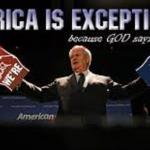The Adventurous Lectionary – The Eighth Sunday after Pentecost – August 3, 2025
Hosea 11:1-11
Psalm 107:1-9, 43
Colossians 3:1-11
Luke 12:13-21
This Sunday we encounter the possibility of prophetic healing, the call to moral stature, and the challenges of wealth in the spiritual life. We also catch a glimpse of divine intimacy: the Infinite is the intimate, and suffers with us and bears the burden of our waywardness.
A Spirituality of Intimacy and Challenge
There are at least three sermons embedded in these lectionary readings. Hosea the prophetic challenges us to ask: Is God apathetic or passionate? Is God beyond concern for this world and its idolatry and injustice or does God have skin in the game? Does God view our human joys and sorrow as an observer, “from a distance,” or is God the “fellow sufferer who understands?”
The author of Colossians challenges us to “ponder nothing earthly minded.” Colossians queries: What does it mean to have our lives “hidden” and then “revealed” in Christ? Toward what should our attention be given in our personal and political lives? How can we live embodied and holistic lives and maintain spiritual purity? How can we practice morality in the political and economic realms?
Luke’s story of the man who built the great barn asks: Are we too enamored of prosperity to hear God’s summons? What is our ultimate concern – wealth, power, or relationship to God?
Prophetic Passion
Abraham Joshua Heschel asserts that the prophet’s passion is energized by her or his experience of the divine pathos. According to Heschel, the prophetic God is passionate for justice and God’s passion for justice is grounded in God’s intimate care for the world in all its wondrous messiness. God not only loves humankind; God loves individual persons and grieves when one of God’s children is homeless, abused, unjustly treated, or neglected. God is equally passionate in God’s response to those who commit injustice. God still loves them, but God’s passion may burn brightly, appearing like what Hosea describes as a lion roaring in the wilderness. Divine empathy inspires prophetic empathy as well as divine and human righteous indignation.
The prophet Hosea’s words describe the divine pathos in all too human terms. Or, perhaps, Hosea shows us what it means to be truly human by his portrayal of the divine passion. God’s quality of life is connected with our decision-making. God’s infinity is intimate to the point that God is truly maternal and paternal, feeling the currents of our lives flowing into God’s live. God’s people are bone of God’s children the bone and flesh of God’s flesh and bones. A loving parent, God mourns, laments, struggles with mixed feelings of love and rage, and vows to be faithful to God’s people despite their infidelity. God sees the people suffering because of their injustice and mourns for them, knowing how painful the consequences of injustice will be them.
Hosea’s God is literally mad as hell at these wayward people. A frustrated parent, God feels like giving up on them, they run away from God’s love and what’s good for them. But, God’s love tempers God’s anger at their behavior. Like a parent whose child has gone astray, God is angry and anguished, but this cannot nullify God’s love. While we may have more “rational” and “dispassionate” understandings of God’s love, we need to ask ourselves questions such as “What would anger God about our nation’s behavior? Does God lament and condemn our willful destruction of the environment, our complacency with gun violence, and our terrorizing of refugees? Where have we brought pain to God?” We must ask ourselves in the present tense, “Where are we turning away from God? Where are we oblivious to God’s call through the experience of those persons who, to use Howard Thurman’s words, have their backs against the wall due to poverty and injustice?” This is a personal question and it is also political in nature.
Hosea is speaking to the nation, and of course this also includes individual decisions and public policy as well. We are the nation writ small and we cannot evade – those of us who have power and privilege – our complicity in our nation’s waywardness. The prophetic God would be rightly angered by the vast gulf between the rich and the poor, our destruction of the environment, our abandonment of children, our voicing family values and yet supporting business policies that destroy family life, our failure to provide sufficient incomes for the working poor and our cutting programs that feed children and provide medical care for vulnerable persons, our traumatizing of undocumented residents, and the institutionalized injustice inspired by for profit prison systems.
Steadfast Love
The Psalmist proclaims that God’s steadfast love endures forever, despite human and national waywardness. This steadfast love is global and yet, as activists note, this love also focuses on whoever is in need at this moment. Black lives matter, LGBT lives matter, refugee lives matter, children’s lives matter, homeless lives matter, and blue lives matter – all lives matter and so does each life! Like a good parent or grandparent, God loves all God’s children, but addresses at this moment, the one who needs love most. God’s love for the vulnerable does not mean God does not love those who are “sitting pretty” and enjoying privilege, but that right now, they don’t need to experience God’s care as fully. Perhaps later they will. Contrary to those who seek to maintain the status quo by asserting that God loves universally and abstractly, the prophetic vision of God proclaims that God’s love is always personal and intimate, and always contextual and relative, for all but more importantly for each one.
Living by a Vision
Colossians counsels us to set our minds on what is above, to focus on what is congruent with God’s wisdom embodied in our lives. “Above” is not geographical, but spiritual and existential. If we believe in the resurrection, we must live in a certain way. We must, as Wendell Berry assets, “practice resurrection” by our countercultural commitments.
To be born from above means living by a higher standard. The author’s list of lower things reflects whatever turns us away from God and our neighbor. God wants us to address one another with love and respect, not objectify, manipulate, and defraud. You are a “little Christ,” as Luther would say. God is “hidden” in you as your deepest reality; Christ is alive in you. Let the Christ in you be incarnate in your daily interactions and values. Regardless of what you or others see, God is your deepest reality. And we must expect our leaders to aspire toward the highest values despite the pluralism of our society.
Being Rich Toward God
In a land of tax cuts for the wealthy and where institutionalized greed is the norm, the story of the foolish rich man reminds us to consider our values. Delighted in his largesse, the rich man focuses on his well-being alone to the neglect of his community. He focuses on security, wealth, and comfort, and then discovers that he has forgotten to attend to his spiritual and relational life. Death equalizes all of us and thus challenges us to consider what is truly important for us and those around us.
Paul Tillich spoke of this in terms of “ultimate concern.” Is our ultimate concern what we say it is or have we succumbed to the values of the world? Many conservative Christians continue to support Donald Trump, despite his ongoing dishonesty and lies, racist rhetoric and policies, traumatizing of immigrants many of whom are Christian, questionable patriotism, bullying, lack of concern for justice or the environment, and continuing attempts to destroy democracy. Not to mention his materialism and consumerism. In fact, many see no conflict between “love it or leave it” rhetoric aimed at persons of color, undocumented residents, citizens and representatives in Congress, and the gospel. Their one-sided support suggests that faith has little or nothing to do with their political responsibility, especially as it concerns the biblical welcome to strangers and refugees, concern for justice for all, and provision of a safety net for the most vulnerable. That being the case, we who are progressive have to ask ourselves the same question, “Where does our faith enter into our political and business decisions? How does faith shape how we spend our time and the focus of our activities?” Many of us place family first, and yet act as if family is less important than our professional lives and support systems that make it impossible for many families to enjoy decent quality of life.
How are we to be rich toward God? How are we to place God as our ultimate concern? This is a matter of time, talent, and treasure. It is also a matter of public policy. While we love the world best by loving God, we also love God best by loving the world. In light of the prophetic vision of divine pathos, we need to ask ourselves where we are going astray as persons and as a nation. Where are we causing pain? For some, it may be the use of abortion as a method of birth control; for others, it may be the abandonment of our poorest children at birth through unjust economic and governmental policies. The God of Jesus and the prophets feels the pain of the world and also recognizes that virtually every choice we make has a variety of implications, positive and negative. God’s passion inspires us to be passionate about healing the nation and the people in front of us. Wealth toward God may mean a greater commitment of resources to our church and a willingness to support governmental programs that may raise our taxes. It will mean sacrifice, and the recognition that opulence is robbery from the poor and the non-human world and the God who loves them.
Today’s scriptures invite us to breathe deeply the divine passion. In the spirit of the British maxim, they invite us to “keep calm and be passionate about justice.” They call us to change our lives and encourage institutional change, while not polarizing. They call us to listen deeply for God’s stirrings in the events of the day and in our own passion for human and non-human well-being.
+++
Bruce Epperly is Theologian in Residence at Westmoreland Congregational United Church of Christ, Bethesda, MD (https://www.westmorelanducc.org/) and a professor in theology and spirituality at Wesley Theological Seminary. He is the author of over 80 books including: “Homegrown Mystics: Restoring the Soul of Our Nation through the Healing Wisdom of America’s Mystics” (Amazon.com: Homegrown Mystics: Restoring Our Nation with the Healing Wisdom of America’s Visionaries: 9781625249142: Epperly, Bruce: Books) “Jesus: Mystic, Healer, and Prophet “(Jesus: Mystic, Healer, and Prophet: Epperly, Bruce: 9781625248732: Amazon.com: Books), Saving Progressive Christianity to Save the Planet”( Saving Progressive Christianity to Save the Planet: Epperly, Bruce G: 9781631999215: Amazon.com: Books), and his most recent book, “God of the Growing Edge: Whitehead and Thurman on Theology, Spirituality and Social Change.” (The God of the Growing Edge: Whitehead and Thurman on Theology, Spirituality, and Social Change: Epperly, Bruce G: 9781631999291: Amazon.com: Books The God of the Growing Edge: Whitehead and Thurman on Theology, Spirituality, and Social Change: Epperly, Bruce G: 9781631999291: Amazon.com: Books) His latest book is “A New Pentecost for Progressive Christians.” (A New Pentecost for Progressive Christians: Epperly, Bruce G: 9781631999413: Amazon.com: Books)












